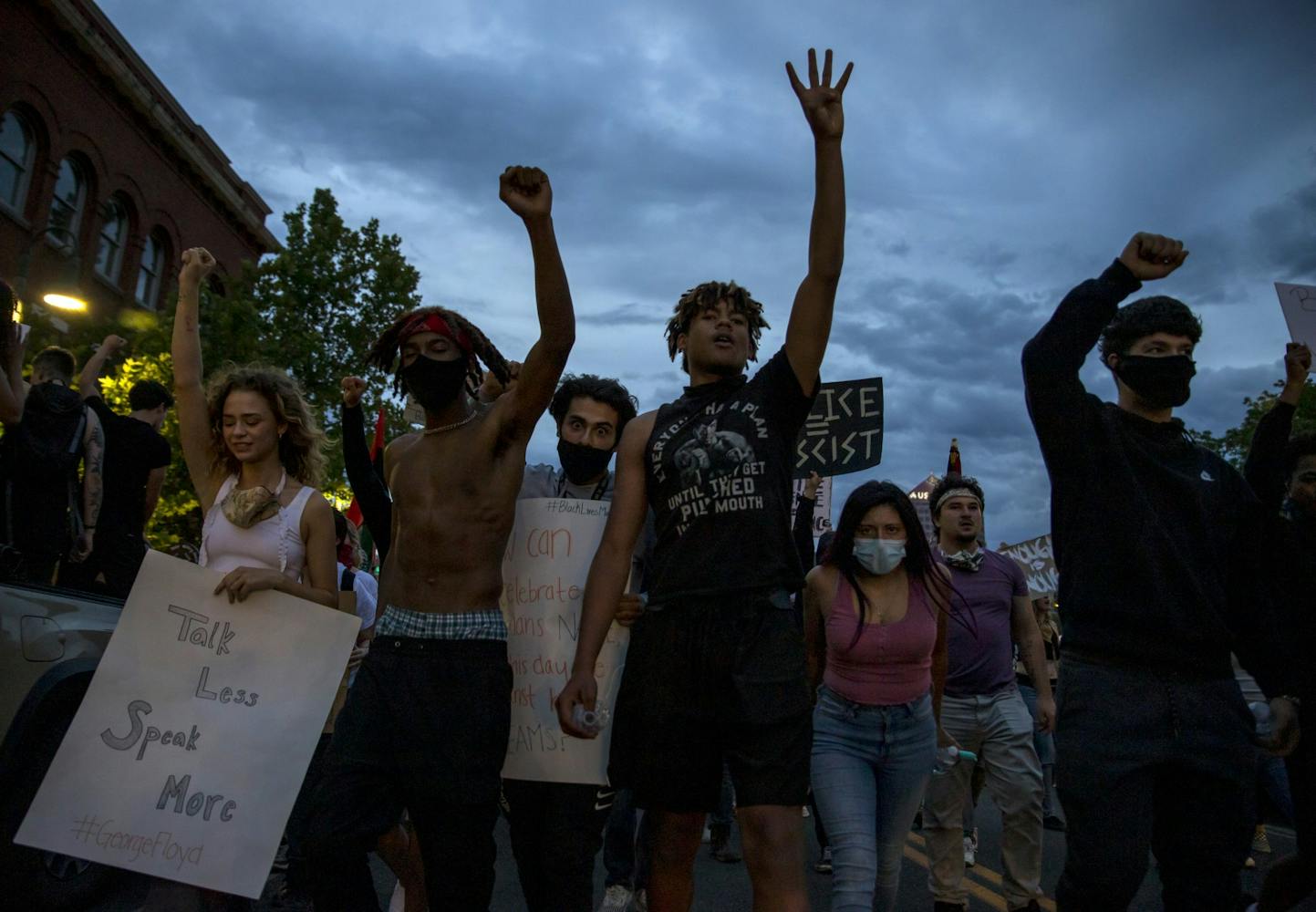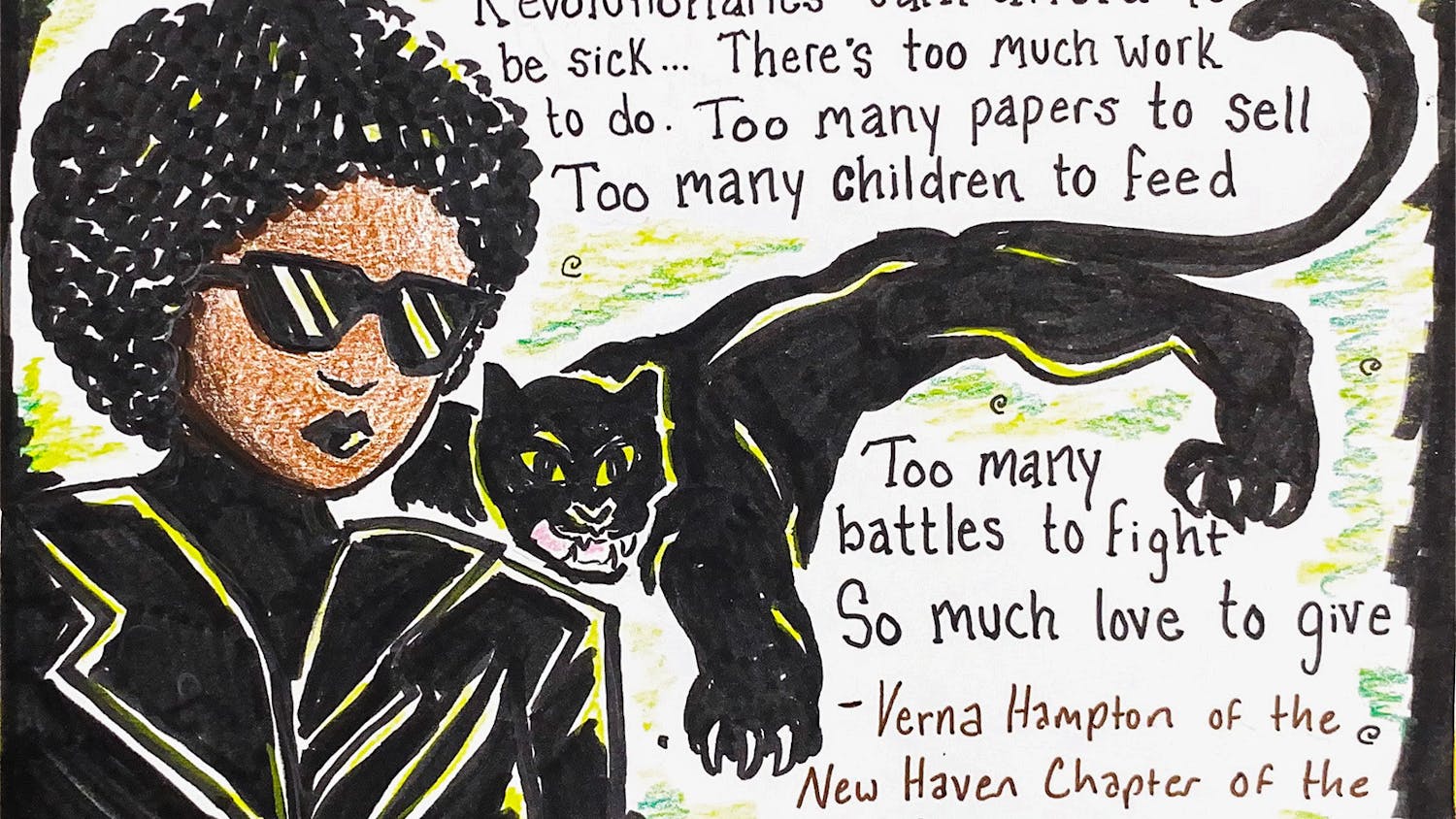What will happen to keep the positive momentum of the Black Lives Matter movement going and ensure social justice efforts continue when the media shifts its focus away from it?
“When the Hashtag Stops Trending,” an online Zoom event hosted by African American Student Services (AASS) on June 25, asked precisely that — and the query resulted in a litany of answers on concrete actions Black activists and allies can take going forward.
The event was a part of an online video series that discussed contemporary issues faced by the Black community.
AASS professional support intern Dannelle Kirven said she chose to focus the event on activism in the media because of online backlash toward performative acts of anti-racism, such as posting a black square on Blackout Tuesday without taking restorative actions to support the BLM movement.
“Our staff observed that there is a current cycling of memes and posts on social media that are criticizing people who have never spoken up on police brutality and racial injustice before but are now joining the conversation,” Kirven said. “Many of the posts are questioning the integrity of supporters and questioning how much support will remain when #BlackLivesMatter is no longer trending.”
AASS senior student success specialist Johana Gourdin said the discussion is crucial because the world will “never be the same,” even when the hashtag stops trending.
“It’s incredibly important that we discuss sustainable and intentional change,” Gourdin said. “I don't think things will ever be the same, so we need to decide what world we want to live in and how we are going to make that happen.”
The event featured four guest speakers: Shawna Brown, the founding member of the New Mexico Black Leadership Council, Erica Davis-Crump, an intersectional activist, Jim Harvey, the executive director of the Albuquerque Center for Peace and Justice and Tim Green IV, a University of New Mexico PhD candidate in critical education.
Audience members asked about resources for Black women centered around prenatal health, how to create nonprofits for Black fathers and how to use performing arts as a restorative force during emotionally traumatizing times.
Brown kicked off the discussion by clarifying the BLM hashtag promotes justice for Black lives but more specifically initiates discourse regarding police brutality and the prison industrial complex. She said once the hashtag stops trending, society needs to read, watch and learn.
Davis-Crump warned against allowing the hashtag to fade away, sensationalizing Black activism and tolerating the erasure of Black women.
“Right now, Breonna Taylor’s murderers still walk free,” Davis-Crump said. “While we are sad and shocked by the murder of George Floyd, we need to stop erasing the womb he came from, which is that of a Black woman. It is up to us to continue the narrative that we wish to see.”
Get content from The Daily Lobo delivered to your inbox
Green addressed the significance of educational reform when combating systemic racism, a particularly relevant stance considering the controversy surrounding taking down statues of racist historical figures.
“White supremacy and oppressive institutions feed off of one another, so what’s happening now is not just dismantling of statues but rather the first step of reparation,” Green said. “These statues are white supremacy manifested into our schools. We are in a very pivotal moment where these systems can be restructured, otherwise everything will return to the status quo.”
Exhaustion induced by sensationalized activism in the media was a prominent concern at the event. The suggested solution was joy, which led to a conversation about fostering spaces of joy for Black communities and how joy is inherently instrumental in revolution.
Harvey spoke about the healing power of performing arts in fostering critical storytelling and community work.
“Our stories have to be told, and we can get joy and learn more about ourselves through telling our stories,” Harvey said.
Brown and Davis-Crump said it is more difficult for Black people to experience joy due to white supremacy — they agreed happiness and healing in the Black community are bitter pills for racial extremists to swallow. Brown said she shares images of Black joy on social media frequently to combat this, while Davis-Crump encouraged viewing love, joy and peace as frequencies that can be built upon by other people or events.
The speakers agreed that joy also entails rest, especially when sensationalized activism becomes too emotionally scarring to view.
Gourdin similarly addressed the phenomenon of “ally fatigue” in a separate interview with the Daily Lobo.
“Take breaks from reading especially heavy texts, don't take in too many police brutality videos at once, get comfortable deciphering statistics, don’t rely on Black people to do the emotional labor for you, don’t take one action and forget the why, and DO be kind to yourself — you are helping create a better world,” Gourdin said.
Kirven said the hashtag, though fleeting, is reflective of 400 years worth of struggle. She said individuals need to voice this struggle even after information disappears from social media feeds.
“If you are in a position to eliminate racism — no matter how small you think your impact will be, no matter how old and traditional the system is, no matter who may not agree with you — change it, and realize change does not come about by polite and easy conversation or actions,” Kirven said.
Gourdin agreed.
“Continue to have hard conversations. Read up, talk with family and friends about why you were raised to believe certain things, confront your biases, amplify voices of marginalized folk, use your privilege to demand change and uplift, uplift, uplift,” Gourdin said.
Davis-Crump said the most efficient way to move forward is to shift the narrative rather than echoing that of the opposition.
“Changing the narrative is how you can take back the life that is siphoned out of you,” Davis-Crump said. “Your words are prayers. Make others pivot to your narrative.”
Beatrice Nisoli is a senior reporter at the Daily Lobo. She can be contacted at culture@dailylobo.com or on Twitter @BeatriceNisoli








